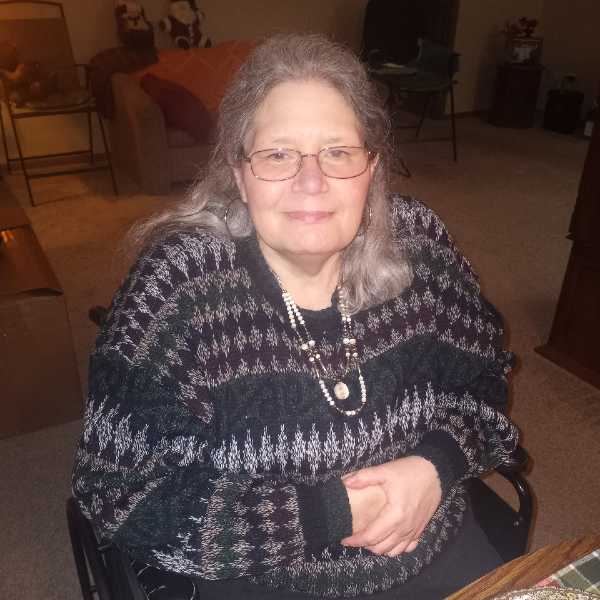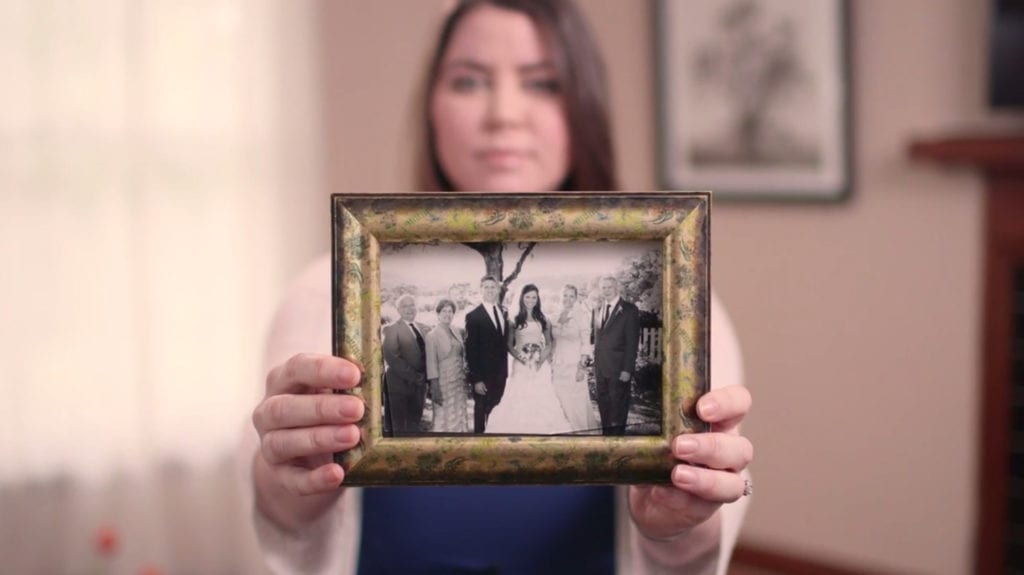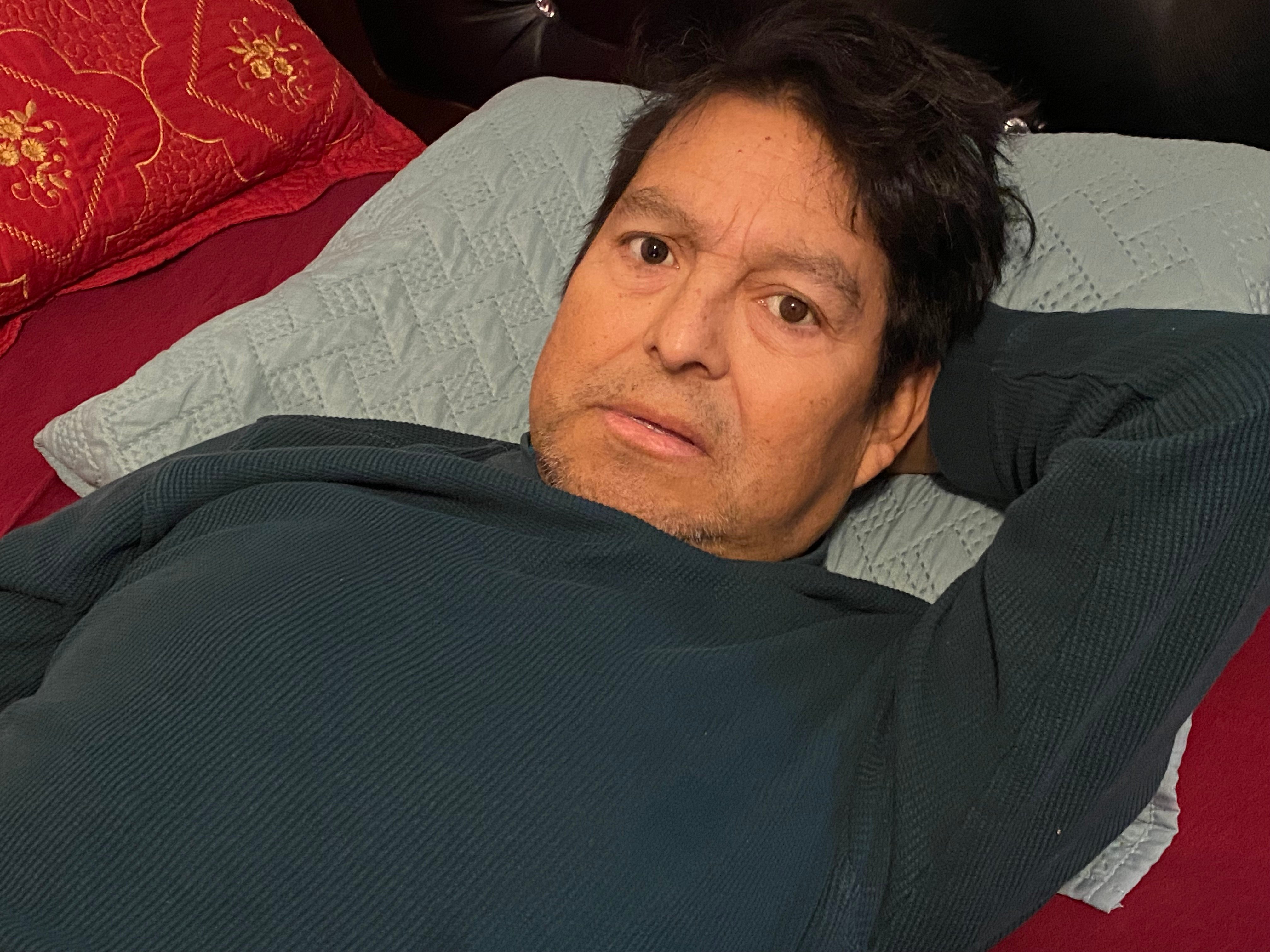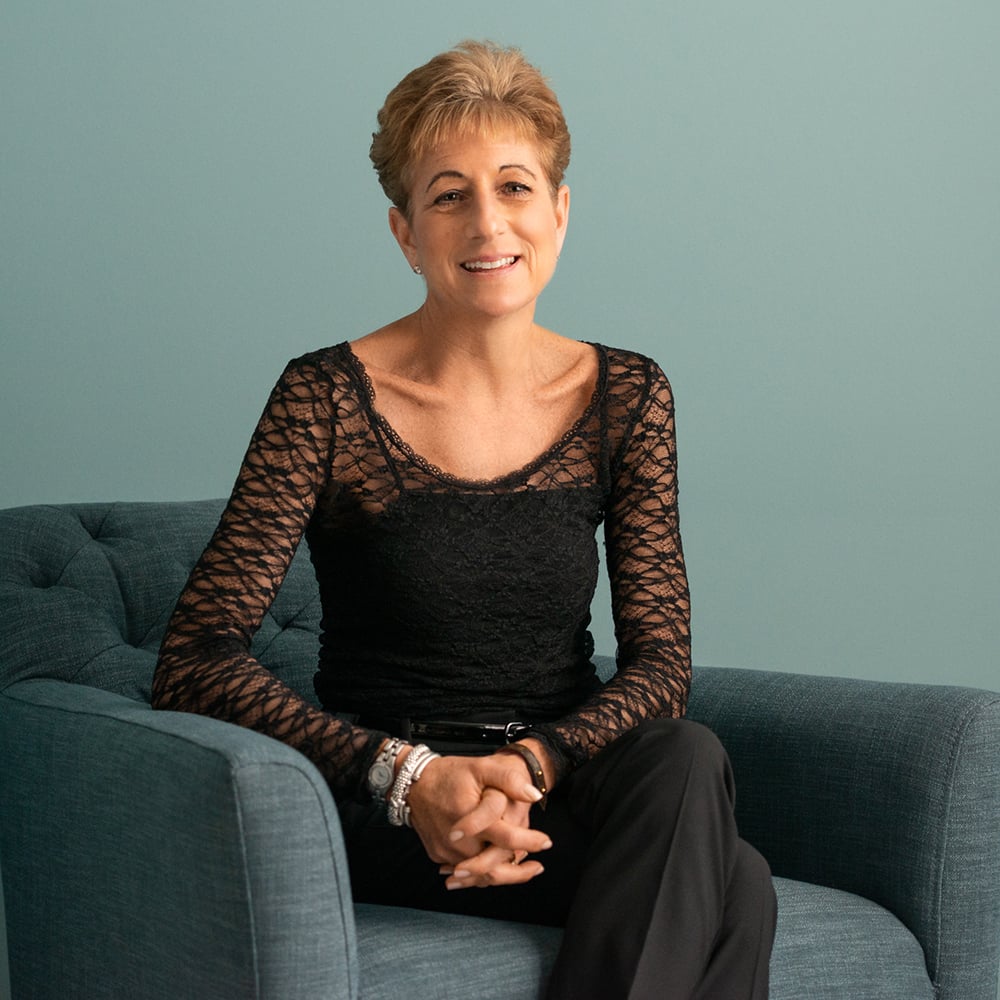Verna shared her story in February 2022.
On an early summer morning in 2018, my partner Jack Russe fell out of bed and couldn’t get up. I attempted to lift him, but Jack was a lot bigger than I am, plus I was using a walker myself due to my multiple sclerosis. I couldn’t do it. After several failed attempts, I said, “I’ve got to call 911.” “No, you don’t,” Jack replied. “Just let me die.”
Jack had been having some chronic health issues before he fell, so we had had many conversations about our end-of-life wishes and how neither of us wanted to have a greater quantity of life if we were lacking quality of life. I understood why he was saying what he was saying now. But I couldn’t pretend he wasn’t lying on the floor. I couldn’t just leave him there until he passed. I called 911. That began what I call the “yo-yo” — long, hard months bouncing back and forth between rehab and the hospital.
Jack and I were partners for 15 years, and we were close friends for five years before that. He was a former cop who liked to pretend he was this gruff guy. He got a motorcycle when he retired, and when he had on all his leathers for riding, you’d look at him and think, Wow, he’s tough. But I’ve learned that the harder they look, the softer they really are. For example, Jack volunteered with Operation Welcome You Home, which supported veterans returning from Iraq and Afghanistan. At the “welcome home” events, Jack would do this presentation, and he could hardly get through it half the time without starting to choke up. This earned him some good-natured ribbing from his fellow volunteers, who got him a patch for his vest embroidered with his nickname, “Sniffles.”
We did so many things together that we enjoyed. Jack introduced me to the joys of ocean cruises — we experienced four cruises in the Atlantic, and our final cruise was a phenomenal 14-day trip to the Pacific to see the Hawaiian islands. We also took road trips on our motorcycles, got tattoos and raised our cats together. When we took our new cat to the vet, I heard his big voice say, “Hey, what if we want to adopt this other one too?” He was pointing at a kitten in a cage with two others: “The white ones are picking on her.” That’s how we went into the vet with one cat and came home with two. Jack was always looking out for the little guy.
My first hint that something bad was going on was when he had to stay in the hospital for over a week due to some pulmonary issues. Jack was a smoker, and he had type II diabetes. But it wasn’t until he fell out of bed that morning in 2018 that we learned how bad things really were. At the hospital, they discovered he had cirrhosis of the liver. He went into rehab for a while, but then fluids started building up in his system, so they took him to the hospital again, drained the fluid, and sent him back to rehab.
From early June through November, we were shuttling back and forth between hospital and rehab, and every time he went and came back, he got worse. The doctors were not being forthcoming about Jack’s overall health; it seemed like they were trying to play miracle worker. I remember thinking to myself, “Modern medicine is great, to a point, but why are you doing this to this man?” He went from this robust guy who enjoyed everything to being confused, dispirited and aggravated because things that had been easy for him no longer were.
In November, Jack’s stomach started swelling again with fluid and they took him back to the hospital. The doctor called me and said, “We need to talk.” He told me things weren’t looking good for Jack. “Maybe we could try this, maybe we could try that…” “Maybe what?” I said. “He’s getting to be less and less of Jack.” “Or we could do nothing,” he replied. “He could stay here and have good in-hospital hospice care.”
While the doctor and I were talking, Jack was still recovering from anesthesia. Because Jack and I had talked quite freely over the years about what our end-of-life wishes were, it made things easier, even if it wasn’t easy, for me to have this conversation now. We had seen how difficult it was for my mother when her partner of 30 years passed away, and we had decided right then and there that we were going to plan ahead for our final days, including prepaying for our cremations and setting up our healthcare power of attorney for one another. At the time, people said, “That’s so morbid!” And I would say, “No, that’s a gift to my family.”
I looked at the doctor. “Please, just keep him comfortable.”
When the anesthesia wore off, I told Jack what I had discussed with the doctor while he was in the anesthesia fog. “This is your final choice,” I said. “I told the doctor to go ahead and put you on hospice.” “My end is near,” he said. I said, “Yes, honey.” And that was it.
Hospice made Jack’s transition more comfortable. They even took care of me, too, providing fruit, pastries and coffee so that I didn’t have to make the difficult trek between Jack’s room and the cafeteria. They also provided support from this other group, No One Dies Alone, so I knew that at any time, even if I couldn’t be there, there would be someone sitting with Jack.
The last time I was there, I could tell he was in so much pain despite the pain medication. I remember crying, and Jack was crying a little too, and I was holding his hand. I said, “Honey, it’s okay. You are loved. You can let go. I will be okay.” And I just kept repeating that to him: “I love you. I will be okay.”
I went home around 10:30 p.m. and fell into a restless sleep. I woke up a little before six; within 10 minutes, my phone was ringing. It was the hospital. Four days after going on hospice, Jack had passed.
I’m so glad Jack and I had talked about our wishes on end-of-life care ahead of time. It would have been so hard if I didn’t know, if I’d had to guess. However, Jack could have avoided days of suffering if medical aid in dying were authorized in Illinois. He was ready for his own “welcome home.”
Jack was dying, imminently. There was no stopping that. But those final moments between us didn’t have to be wracked with pain. And I know I would want the same option for myself. As someone living with a disability, I believe I should get to make my own decisions about what kind of medical care I receive when I reach the end of my life. No one else should get to make that decision for me. Without this option, even with excellent hospice care, Jack suffered during his last days on earth. For what?






